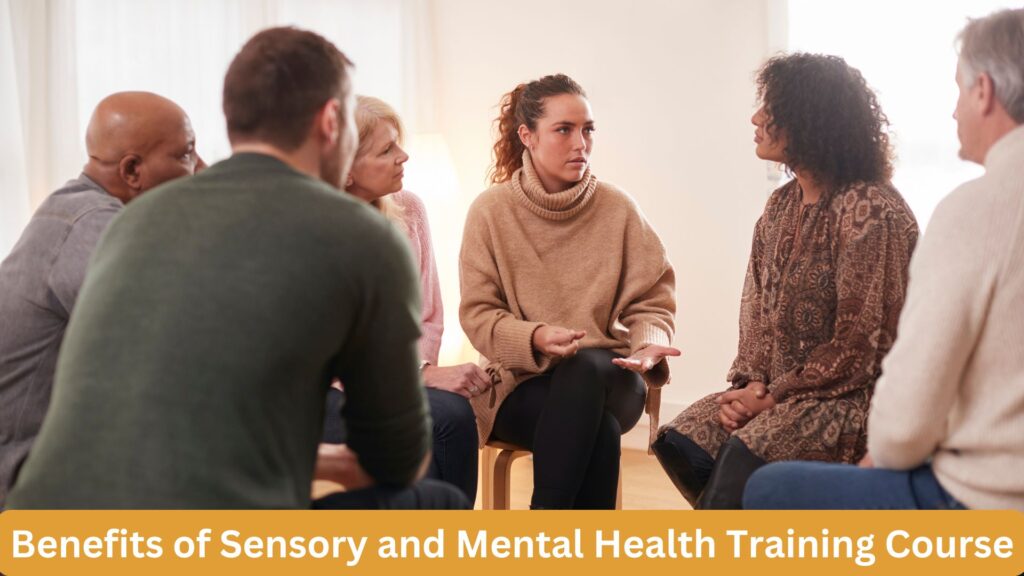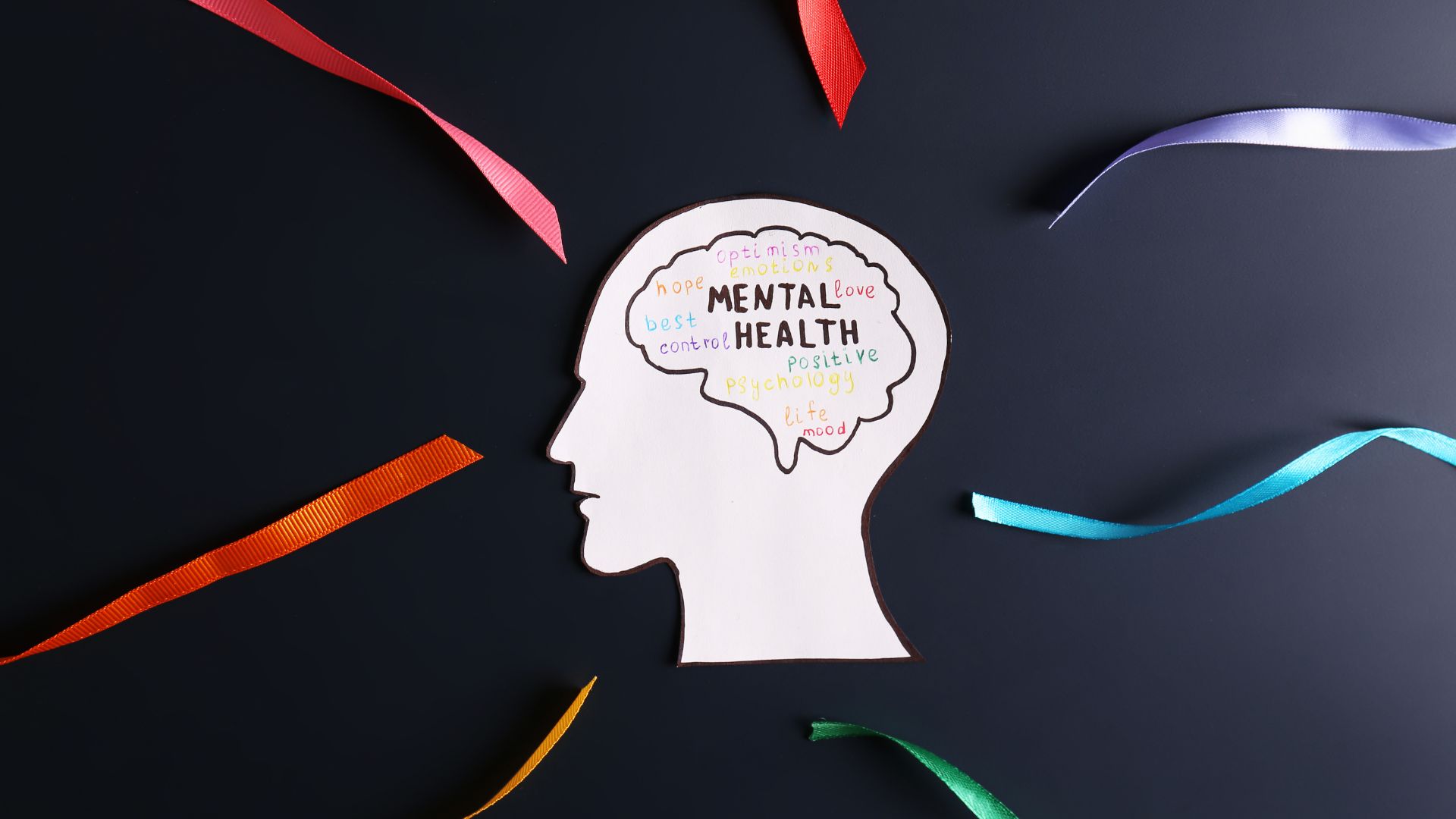Introduction
In today’s fast-changing society, mental health issues are becoming more important day by day. Whether it is stress at the workplace or problems in personal life, it has become extremely important to understand and take care of mental health. Due to this, Sensory and Mental Health Training Course has become an important education option. The aim of this course is not only to understand mental health issues but also emphasizes on identifying it correctly, adopting counseling techniques and developing sensitivity towards the victims.
This article will discuss in detail the various aspects of this course such as its advantages, disadvantages, prospects, requirements, career opportunities and other important information.
What is the Sensory and Mental Health Training Course?
The Sensory and Mental Health Training course provides a comprehensive approach to understanding and effectively working on mental health issues. The course focuses on identifying mental disorders, their diagnosis, counseling techniques and learning sensitive behavior with sufferers. Apart from this, the course also teaches how to develop the right professional approach to mental health.
Main objectives of the course
Identifying mental health issues:
This course helps you recognize various symptoms and signs of mental disorders. Recognizing mental health problems such as anxiety, depression, stress, psychosis, and other mental disorders at the right time is an important skill.
Practicing Counselling Techniques:
Counseling is an important technique to improve mental health. This course trains you in various counseling methods such as executive coaching, therapy, and individual sessions.
Development of Sensitivity:
Sensitivity is the most important quality of a mental health professional. This course teaches you the skills needed to become sensitive towards mental health sufferers so that you can support them and guide them in the right direction.
Benefits of Sensory and Mental Health Training Course

Image credits: canva.com
1. Deep knowledge of mental health:
This course gives you an opportunity to understand various aspects of mental health. Through this, you gain in-depth knowledge about mental health problems, their causes and treatment methods.
2. New career opportunities:
This course in the mental health field opens up various career opportunities for you. As a mental health professional, you can work in hospitals, clinics, educational institutions, and various organizational settings.
3. Better help for victims:
This course helps you understand how to deal with people with mental health conditions so they feel better and get treatment quickly. By offering sensitive support, you can make a positive difference in their lives.
4. Development of professional skills:
Through this course, you can develop various professional skills related to mental health, such as counseling, diagnosis of mental disorders, and other technical skills, which are important for your career.
Disadvantages of Sensory and Mental Health Training Course
1. Time and cost:
Completing this course requires time and resources. If you are busy with other tasks, this may be a challenge for you. Also, the fees for this course can be relatively high by some institutes.
2. Mental pressure:
Mental health work can sometimes be emotionally challenging. You may face immense pressures when working with people with mental health conditions, and this can be mentally exhausting.
Sensory and Mental Health Training Course Requirements
This course is ideal for people who are interested in working in the mental health field. The following qualifications may be required:
- Basic knowledge of mental health – You must already have some basic knowledge about mental health and disorders.
- Patience and empathy – Working with mental health sufferers requires empathy and patience.
- Professional approach – Working in the mental health sector requires a professional approach so that you can perform your role properly.
The way forward: future prospects for sensory and mental health curriculum
As awareness about mental health is increasing, the demand for sensory and mental health training courses is also increasing. This field is constantly evolving, and the career prospects are immense. After completing this course, you can work as a mental health professional not only in hospitals and clinics but also in various educational institutions, non-profit organizations, and government projects.
Career Opportunities in Sensory and Mental Health Training Course

Image credits: canva.com
1. Mental health counsellor:
After Sensory and Mental Health course, you can work as a mental health counselor who helps people solve their mental problems.
2. Therapist:
After gaining expertise in therapy, you can conduct individual and group therapy sessions that help alleviate mental disorders.
3. Mental health educator:
You can work as a teacher in educational institutions to raise mental health awareness, providing information about mental health to students and staff.
Conclusion
The Sensory and Mental Health Training course provides a deeper understanding and skills in the field of mental health. Through this course, you not only learn how to identify and treat mental disorders, but you also learn to deal with mental health sufferers with sensitivity and empathy. Career opportunities in this field are constantly growing, and this course prepares you professionally.
FAQs
1. What is the Sensory and Mental Health Training Course?
Sensory and mental health training courses are a special type of program that teaches various sensory techniques and mental health methods to improve mental and physical health. It involves meditation, sensory experiences, breathing exercises and mental relaxation techniques to achieve mental clarity and peace.
2. How will I benefit from this course?
This course will help you gain mental clarity, reduce stress, concentrate better, and maintain emotional balance. In addition, you will learn techniques to create a balance between your body and mind, which can improve your personal and professional life.
3. Is this course specifically for mental health professionals?
No, this course is for everyone except mental health professionals. Whether you are a practitioner, teacher, parent or just a layperson, this course can help you improve your mental and sensory health.
4. Does this course also include physical exercises?
The course focuses primarily on mental and sensory techniques rather than physical exercises. However, some light physical exercises, such as yoga or meditation, may be included, which help improve mental health.
5. Is this training available online?
Yes, this training is also available on the online platform. You can take part in this course from anywhere and at any time. For this you will need an internet connection and a computer or smartphone.

